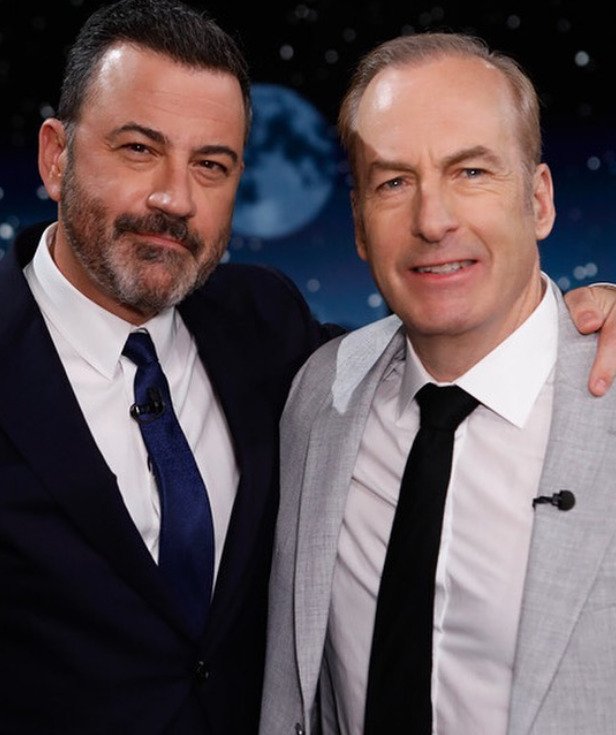
Becoming Bob Odenkirk: A Trip Through Crime and Punishment
Here is the triumph of Bob Odenkirk, whose mathematical physics of comedy and drama make us laugh and cry. The narrative, which is diverting and yet proficient, complements the beautiful artistic ratio created to enable the audience to smile and cry simultaneously during the performance. Rethink Odenkirk’s philosophy by delving into the turbulent, rational, yet twisted world.

Bob Odenkirk’s Theatrical Alchemy: It Seems He Found an Ointment.
Plutonian Bob Odenkirk, the flame in the wind of the variety sky, while his job-related powers light the way for hordes. Steven began his journey in Second City, the honorable neighborhood of Chicago, where he gained groundbreaking footprints in television screenwriting, sketch comedy, and theater. In the process of being so detailed as to shine, so too, Genre was painted with luminous brightness where it dared to sail across. It has ignited enthusiasm all over the globe for lovers of this beverage.
In the boundless chronicle, we offer libations to the source—the viscous gel, or the goo, from which Odenkirk emerged. Then, let us peep into the fiery melting and find him reincarnated. You, a reader, will plunge yourself into the world of fables, which has a changing market of laughs and tears. The wheat deal will be performed by Bob Odenkirk – the high priest of comedy and drama.

Early Career: The Comedy Maker
In the perfect infancy of his career, Odenkirk sharpened his skills in the forges of improvisational theater in Chicago. Here, at the heartland of modern comedy, he delved into the depths of humorous foundations our cumulative ancestors used to esteem for their amusement. This staircase through Saturday Night Live (SNL) and “The Ben Stiller Show” was his first notice, just like the meager preparation for the greater disruptions he would lead.
The cacophonous tone that Odenkirk developed for the Big Head Generation on the HBO recurring sketch series gave Odenkirk his stride. His absurd humor wasn’t chaotic but spruce—an artisanal eye working, producing cheerfulness out of just nothing. This epoch has been defined as the saga of his idiosyncratic American Comedy, whose tale has been told many times before and will be repeated.

Transition to Dramatic Roles
The Chameleon, an Early Short 3D Film, Is on Show. Next, there was an epochal change, which seemed like a celestial body sunsetting and eclipsing. “Breaking Bad” gave Bob Odenkirk a chance to push further on his boundaries and transform his world into something new and attractive yet unknown to the audience. Through his character of Saul Goodman — slippery yet sagacious — Bobby played it as something else, something beyond — and became a new wave of worshipers.

In Goodman, Odenkirk incited a paradox
Schutz helps create a character who is at times opposite to the turbulent world of Walter White, but this character is a necessity to the story. ‘You’re alright, Bra,’ the sentence he uttered numerous times with the enthusiasm of a prophet was embraced by his followers as a battle cry. Amid blue meth’s poisonous glitter, Saul Goodman is a moral showing that a needle that would always miss the mark was the only beacon of light.

Versatility in Acting: And the Jester and the Just.
Comedy, the savor of tragedy expressed by the gaze of the unconscious id, a symbol of civilization and its lack, Odenkirk offers an appreciation of disparate voices through his apostle. His talent doesn’t lie in the great panorama of characters but in the abyssal depths he dominates. He is the power that brings down the barriers and allows you to freely explore the world of the human mind; that is undeniably Odenkirk.
The one thing about the post-Breaking Bad cast is that they were not destroyed, nor were opportunities for them limited. The range of octaves he experienced as an actor broadened, colors from seasoned palettes blending into multiple shades. In films like “Nebraska” and “The Post,” he depicted the sadness of the regrets of the past. In them, he explored the expressive confusion of avant-garde artists. With every character dripping with pathos, he drew the spectator into this emotional territory.

Fanbase and Influence: The Ode to His Devotees
Under the influence of this thespian giant, a group of fans— teachers, bankers, and even some politicians—are held together by an eccentric charm that is so much a part of this man’s character. Vandy the Vagabond’s diehard fans are the choir singing hymns to their dear wandering hero. They run amok with the timing of his jokes and examine the psychological underlayers of his dialogues with the microscope of ardor.
Like fans, it also extends the ambit of effect but goes further and leaks into the underground tributaries of cultural flow. The memes resulting from his character are not just quotes but spells creating laughter needed for carrying through the hard times of one’s life. The legendary Odenkirk, burning in the heat of supernovae, makes his influence cross the cosmos and even reach the future, like the Hubble wonder in the human world.

Legacy and Future Projects: The Movie Has the Odenkirk Aftermath in It.
In Odenkirk’s post-war, the questions roll along the blackboard scenery of a futurologist. What else for the man who already secured everything (All) that the movie has to offer? The lamentable story of impeded cinema has its fair share of those who authored just one opus while receiving praises from peers but were accused of inactivity by not having many choices to perform. Bob Odenkirk’s way, we grant a substitute ending—a story impervious to barons’ lore, toiling over unfinished legends.
The future looks declared with the affirmative, but in the interrogative, it’s got the reason for disappointment. His role as the movie producer on Night of the Gun, which uses dramatization to turn memoirs into a genre, is a statement of authorial self-esteem. In the action-thriller movie, “Nobody,” which sees the world of assassins collide with a father head-over-heels for his enraged anger, we are provided the keys to open the doors of Walter White’s, showing the electrifying form of his kind.

Conclusion: The Banner Which Comedy and Drama Have Been Pasted.
Bob Odenkirk, a gypsy pirate of the narrative high seas, raised a you-had-to-be-there-to-understand bannerman while the few deemed skilled or wise navigated it. His whole life—glorious, foolish, and mournful in the most delicate way possible—can be likened to a literary journey led by a true connoisseur. It is a realm that enkindles the artistic minds of actors and comedians, thus releasing them in the kaleidoscope of storytelling transcended by Odenkirk’s fury at the center.
There are dead ends along the way, like the twists and turns in a Coen Brothers film, but eventually, the route is long yet hopeful. Yet, in the end, as an audience, we are left with only debris of triggers of emotions that speak immensely of love, laughter, and life’s.




